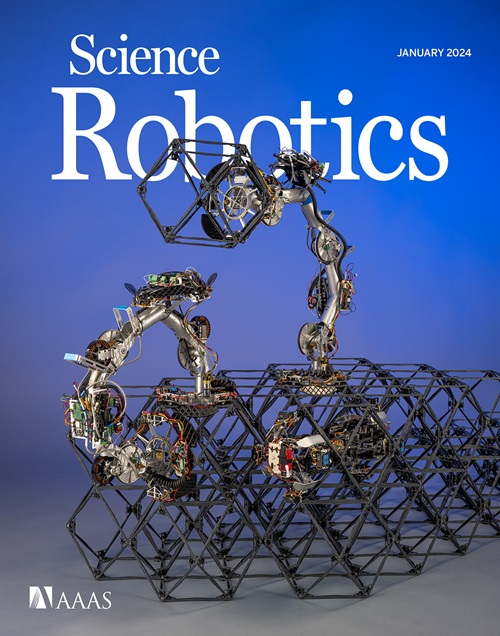学习医疗机器人自主性的巨大挑战
IF 27.5
1区 计算机科学
Q1 ROBOTICS
引用次数: 0
摘要
大多数医疗机器人在操作过程中依赖人类操作员进行感知、决策和行动。未来的进步取决于让机器人具备这些能力。尽管基于学习的方法为实现这一目标提供了显著的希望,但要在临床环境中释放这些机器人的全部潜力,必须解决显著的挑战。本文章由计算机程序翻译,如有差异,请以英文原文为准。
The grand challenges of learning medical robot autonomy
Most medical robots depend on human operators for sensing, decision-making, and action during procedures. Future progress depends on enabling robots to take on these capabilities. Although learning-based approaches provide remarkable promise toward achieving this goal, notable challenges must be addressed to unlock these robots’ full potential in clinical settings.
求助全文
通过发布文献求助,成功后即可免费获取论文全文。
去求助
来源期刊

Science Robotics
Mathematics-Control and Optimization
CiteScore
30.60
自引率
2.80%
发文量
83
期刊介绍:
Science Robotics publishes original, peer-reviewed, science- or engineering-based research articles that advance the field of robotics. The journal also features editor-commissioned Reviews. An international team of academic editors holds Science Robotics articles to the same high-quality standard that is the hallmark of the Science family of journals.
Sub-topics include: actuators, advanced materials, artificial Intelligence, autonomous vehicles, bio-inspired design, exoskeletons, fabrication, field robotics, human-robot interaction, humanoids, industrial robotics, kinematics, machine learning, material science, medical technology, motion planning and control, micro- and nano-robotics, multi-robot control, sensors, service robotics, social and ethical issues, soft robotics, and space, planetary and undersea exploration.
 求助内容:
求助内容: 应助结果提醒方式:
应助结果提醒方式:


